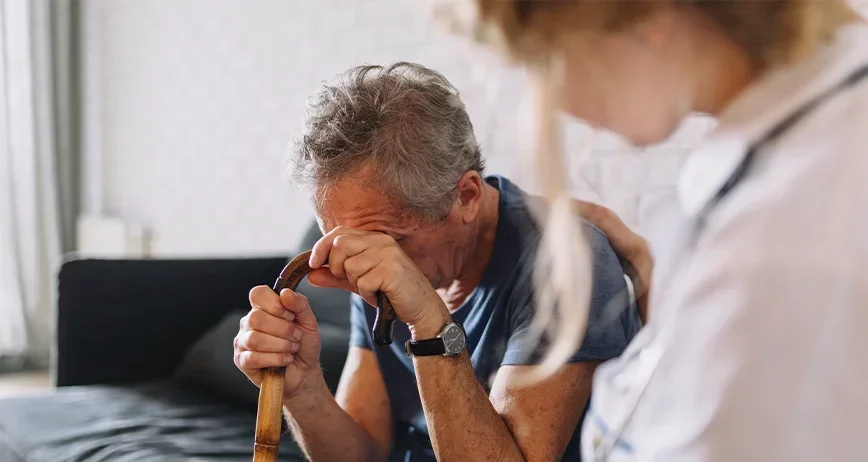Channel your inner Vogue and Confidence!

Hospice negligence happens when the team caring for a dying individual fails to do what they promised or agreed to do. Neglect occurs when basic standards of care are ignored in terms of pain relief, personal care, or medical needs. Mistakes in prescribing medication or failing to respond when needed are other forms of hospice negligence.
These negligent acts result in the suffering of patients. The Centers for Medicare & Medicaid Services (CMS) published the 2025 Hospice Monitoring Report, which says that almost half of Medicare enrollees die while getting hospice care. At the end of life, hospice care is supposed to make individuals feel safe, comfortable, and respected. Unfortunately, sometimes patients die from the negligence committed by the hospice staff.
Hospice malpractice lawyer Stephen R. Hunter says some of the signs of neglect and abuse seen in the hospice setting include bedsores, falls, medication errors, dehydration, infection and other neglect of a patient’s needs.
This article will give you an overview of hospice negligence and offer you information on how to keep your loved ones safe and protected.
Comprehensive holistic care is integral in helping dying individuals to feel better and more supported emotionally.
The whole idea behind hospice care is to focus on making life as good as possible instead of extending it. To achieve this, it seeks to give families and patients adequate assistance to confront the challenges associated with terminal diagnosis.
Hospice care gives you medical, emotional, and spiritual support that caters to the personalized needs of patients. It is a full intervention that upholds a patient’s dignity and provides peace at a subtle level on their behalf.
Having an understanding of hospice care will give you a clear idea to make decisions so that your loved ones get compassionate care amidst one of life’s hardest journeys.
It is about living every moment and making memories together.
When care fails to meet accepted standards and patients suffer harm, it is considered hospice negligence. This type of misconduct can take many forms, including inadequately managed pain, failure to provide emotional comfort, and denial of medical needs.
When a loved one is placed into a hospice setting, there is an expectation that treatment occurs compassionately and competently. Negligence during hospice care spoils their condition or causes needless suffering.
You must comprehend carelessness to advocate for your loved one. Keep in mind that not all negative circumstances can be attributed to negligence. When providers break protocol or deny reasonable care, a breach of duty may have occurred.
Recognizing negligence means knowing the signs of abuse and making certain that your loved one receives appropriate care.
Insufficient pain treatment adequately signals undue suffering. Staff’s unprofessionalism and ignoring your worries may show that your loved one’s needs are neglected.
Lacking hygiene or cleaning services can be a sign of neglect. The absence or incorrect administration of medication should raise significant concerns.
Closely monitor any unexplained weight loss or health deterioration as indicators of potential care neglect. Open communication with the staff is important. If they refuse to cooperate, it’s time to defend your loved one.
Rights regarding hospice care can be difficult to deal with since contradictory information exists. You are entitled to compassionate and adequate care based on individual needs, which also means informing the individual about the treatment options, medications, and risks involved.
You can speak for your loved one and uphold their preference and will. It allows you to access medical records and speak with healthcare providers with clear communicative intention.
You may lodge a complaint with the management of the hospice if you feel that there was a violation of rights. Knowing your rights and exercising them will see to it that your loved one gets quality care during this critical and delicate time.
What should you do when you suspect that your loved one received substandard care?
Document all incidents or observations that have triggered your suspicion. Note down dates and times and any people involved. Talk to the hospice facility staff. State your concerns calmly and ask about the care in question.
If unsatisfied with the answers, then proceed to the higher authorities or a patient advocate. Confer with other family members to gain insight regarding their views.
In case all else fails, seek legal counsel to see what rights and options you have.